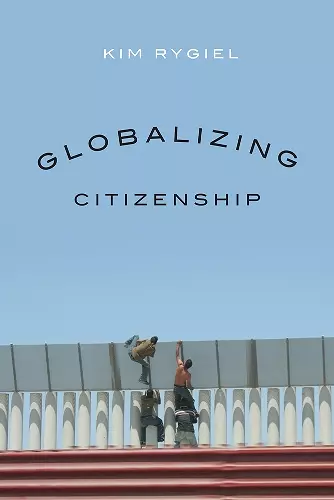Globalizing Citizenship
Format:Hardback
Publisher:University of British Columbia Press
Published:1st Sep '10
Currently unavailable, and unfortunately no date known when it will be back

Globalizing Citizenship reveals how border controls anddetention practices, particularly in the post-9/11 world, aretransforming the meaning and politics of citizenship.
This book traces how border controls and detention practices, particularly in the post-9/11 era, are transforming citizenship into a globalizing regime to regulate mobility.
The events of 9/11 exposed and enhanced tensions between globalcapitalism and the nation-state. Governments struggle more than ever togovern populations and manage cross-border traffic without building newbarriers to trade and commerce. What does citizenship mean in thiscontext? Is it in crisis?
Kim Rygiel explores these questions by examining border anddetention policies in the United States, the United Kingdom, Canada,and Australia as part of a larger politics of citizenship that preceded9/11. Building on Foucault’s concept of biopolitics, she arguesthat citizenship is becoming a globalizing regime to govern mobility asnations harmonize border and detention policies, outsource statefunctions to international organizations and private companies, andrely on technologies of governing to discipline the body. The newmobility regime is not only deepening boundaries based on race, class,and gender, it is causing Western nations to embrace a moretechnocratic, depoliticized understanding of citizenship.
- Joint winner of ENMISA Distinguished Book Award, International Studies Association 2011 (United States)
- Short-listed for International Prize, Canadian Political Science Association 2011 (Canada)
ISBN: 9780774818049
Dimensions: unknown
Weight: 520g
272 pages